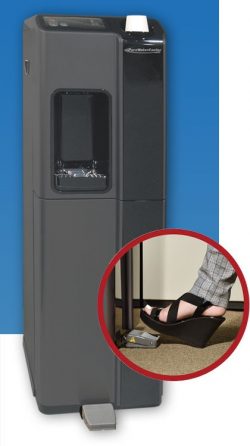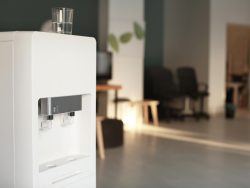What Is the Best Water Filtration System?
Water filtration is extremely important for a lot of people. It is not just a matter of preference for taste and odor. In fact, there are so many different uses, including removing some toxins and contaminants, as well as catering to people with health concerns. There are so many different water filter types out there, so it’s quite difficult to determine the absolute best water filter for your home or business. It all depends on a wide range of circumstances and factors. Keep reading to learn more.
Get to know your water source
It is incredibly important to get to know your water source. The quality of your local water supply will directly affect what water filter you’ll need for your personal use. In addition to that, you will also have to consider your personal preference. Most people have different tastes when it comes to the odor and taste of their water. More importantly, many users have different health requirements, which means that they are going to need to be very careful with the water they use, not only in terms of its source but also in terms of how it gets filtered.
Know your preferences and needs
Knowing your unique preferences and the way that each water filter works is extremely important as well. Consider the following…
Taste
Water filtration can alter the taste of water, but it’s a common misconception that water filtration makes water taste better by default. While most types of filtration can indeed improve the drinking experience, ultimately the taste impact of filtered water is going to depend specifically on the particular water source available to you, as well as the specific filtration methodology that you are using.
Removing Contaminants
One of the most important functions of water filtration is indeed removing harmful contaminants – such as chemicals and heavy metals – from the water. Even the most reliable water supply will indeed have trace amounts of heavy metals, as well as chemicals and other toxins, which will inevitably go on to make an impact on the overall quality of the water at your disposal. All of the best home water filtration systems out there should accommodate this particular fiction.
People who are immunocompromised can deeply benefit from water filtration because they require a low concentration of germs in their drinking water and daily life in general.
Consider your home or business, lifestyle, and budget
There isn’t a single filter out there that can eliminate all contaminants. For this reason, it is very important to understand what each filter does or does not do. Picking the right filter is an important part of the decision-making process, and to make sure you’re getting it right you should get a grasp on which filtration options are available on the market. Once you know all of your options, you can determine which water filter fits your unique needs.
Some of the things to consider are how much content will the filter remove, and what exactly. Some filters are indeed more efficient than others for certain specific tasks, and it is up to you to determine whether you’ll be getting the most bang for your buck. For example, if you chose a reverse osmosis water filter, it will have a different process and different operational costs compared to, say, an activated carbon filter.
In addition to that, it is also quite important to get to understand just how much water you’ll need. Some filters are quite slow, meaning that it is going to take a lot more time to use them at their full capacity. Operational speed is also important, as it can dictate the way you use your filters and how much filtered water you can get in a given timeframe.
Filtration options
There is a huge variety of filtration options out there, and each method has different benefits and applications. With so many possibilities, it can be tricky to know what to look for and which water filtration system is best for your home or business.
Here is a breakdown of some of the most popular and effective water filtration methods and purification processes.
Sediment Filtration
Sediment filters are particularly effective in removing particulate matter such as sand, silt, dirt, and rust from drinking water. These particulates, known as suspended solids, are often invisible to the naked eye but are almost always present in untreated water.
In addition to filtering your drinking water, sediment water filters act as a barrier against the particulates that can reduce the life and efficacy of water-using appliances. Sediment filters essentially act as a net that catches unwanted particles as they flow through the water cooler or water system.
Sediment filtration is the most common approach on the market. These filters are inexpensive and the protection they provide is worth every penny. Sediment water filters are so effective they are nearly always used as a “first stage” before other filtering systems – such as carbon filters or UV filters – to maximize the reliability and quality of the end result.
Activated Carbon Filtration
Carbon is among the most commonly-used medium in water filtration processes. Carbon filters are so effective that they are used in nearly every water filtration system. Whether it is a backpacking water filter, refrigerator filter, water pitcher filter, whole-house filter, or reverse osmosis water filtration system – they all utilize carbon filtration in some way.
The carbon source might be bituminous coal, peat, or coconut shells. Coconut shells are the most popular option as they are highly effective and highly renewable.
With activated carbon filtration, contaminants are attracted to the surface of the carbon and held to it, much like a magnet. Carbon filters are ideal for removing organic chemicals, VOCs, pesticides, herbicides, chlorine and its by-products such as chloroform.
The most common type of carbon filter is Granular Activated Carbon (GAC) water filter. GAC filters are made of loose granules of carbon that look a bit like large, black grains of sand. Carbon Block filters on the other hand have solid blocks of compressed carbon that are formed with a combination of heat and pressure.
Carbon filters are among the most effective options for those who are looking to remove pollutants from their water sources. These filters are great to get rid of metal residues from the water, as well as remove microbiological contaminants that might decrease the quality of drinking water. Carbon filters have been shown to be effective in removing trace amounts of arsenic, asbestos, mercury, and more. Granular Activated Carbon (GAC) is constantly growing in popularity, especially because these filters are quite versatile and rather easy to set up in a wide variety of settings, whether it is for home use or for the workplace. A similar option is Solid Block Carbon filtration. This particular filtering approach is most commonly utilized in tandem with sediment filters.
Phosphate Filtration
Phosphates are actually quite common in public water systems since public water systems often add phosphates to drinking water to prevent the leaching of lead and copper from pipes and filters. This prevents metal from polluting the water supply and keeps protects pipes and plumbing fixtures from excessive corrosion.
While phosphates are not harmful to humans or animals in low doses, excess phosphates create water that is cloudy and low in oxygen. Phosphate filtration can control iron and manganese, inhibit or remove scales, control corrosion, and stabilize chlorine.
Phosphate filters are most often used in combination with granular activated carbon filters which can remove 70-90% of phosphates.
Reverse Osmosis Filtration
Reverse Osmosis filters are incredibly effective when it comes to reducing exposure to various harmful contaminants in water. Reverse Osmosis filtration will remove chemical contaminants and minerals such as sand, chlorine, fluoride, cryptosporidium, and hexavalent chromium.
Reverse Osmosis is a state-of-the-art filtering solution, which protects the water from metals such as lead and mercury, as well as various nitrates and particulates. Reverse Osmosis filtration will remove chemical contaminants and minerals such as sand, chlorine, and fluoride, and can remove 90% of total dissolved solids (TDS) from water. Moreover, it is an effective ally in the never-ending fight against viral and bacterial contamination.
This method is currently hailed as one of the most innovative filtration systems and is a relatively new addition to some of the most popular water filtration providers’ product lineup.
Reverse Osmosis systems are extremely effective but provide different features than “standard filtration” methods, so they must be used in combination with sediment filters and carbon filters.
Ultra Violet Filtration
Ultraviolet (UV) water filtration can help users disinfect water and sanitize their supply without the need of using chemicals such as chlorine or fluoride. The action of ultraviolet filtration is extremely fast and environmentally friendly since there is no by-product or waste from chemicals or other disinfectants that would be employed otherwise.
UV water filters destroy 99.99% of harmful microorganisms without adding chemicals or changing your water’s taste or odor.
Ozone Filtration
Ozone sanitation is extremely effective against bacteria and viruses. It is often compared to UV filtration, but it is not quite the same thing. Unlike UV filtration, Ozone filtration has some oxidizing properties which help in reducing the concentration of sulfur, iron, and manganese in the water, which are often responsible for taste and smell issues with water. This filtration system is more effective than chlorination, and it doesn’t produce chemical waste.
Alkaline Filtration
The major benefit of alkaline water filters is that they can improve drinking water from a nutritional standpoint by neutralizing the acidic properties we accumulate through our diets. Excessive pH in your body might actually lead to the production of more fat cells, resulting in weight gain. Alkaline water filters can prevent that by controlling the pH of your water supply.
Alkaline filters have the added benefits of producing water with anti-oxidative qualities, soothing acid reflux, and enhancing cardiorespiratory capacity.
Summary
Not all water filters are created equal, and there are so many different options to choose from. There is no such thing as the best water filter, but rather the best water filter for you. And remember, maintenance is key.
Filters that are not well-maintained can do more harm than good. Be sure to follow manufacturers’ instructions for proper maintenance and lifespan of your water filters. If you rent your water cooler, your service provider will keep a maintenance schedule for your water cooler and ensure regular filter changes.
Consider what water filtration method is best for your home or business. At the end of the day, it is really all about your preferences and needs. This is a question that only you can truly answer. However, your local water cooler rental company would be delighted to offer some guidance and suggestions if you give them a call to discuss all of the filtration options available to you.
Find out more and don’t hesitate to get in touch with our experts for any inquiry: https://coolplanetwater.com/contact-cool-planet-water/




